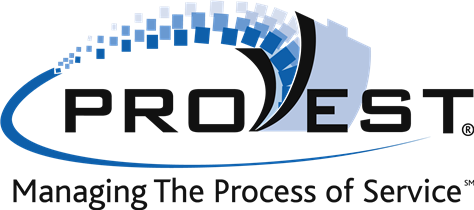What Creditors Rights Attorneys Need To Know About the FCRA and Why?
NCBA Legal Learning Webinar
Join subject matter experts, attorneys Susan Appel, John Bedard, and John Rossman as they provide participants with a core understanding of the Fair Credit Reporting Act (FCRA) and unique compliance challenges for attorneys representing creditors and other data furnishers of consumer credit information. Attorneys at every level within creditors rights law firms, or creditors’ in-house counsel, will benefit from this legal education program.
Learning Objectives
From responding to disputes made through the various credit bureaus to direct consumer disputes, creditors rights attorneys must have the right policies and procedures in place to comply with the law, their clients’ protocols and recent CFPB mandates.
Attendees will learn from industry experts, how what happens in your firm and in the court room can impact how your client responds to various types of consumer credit report disputes as well as how to establish best practices and policies that will keep law firms and clients in compliance with regulations and applicable laws.
FCRA Basics — The basic FCRA concepts and terminology, including “consumer report,” “consumer reporting agency”, “investigative consumer report”, “end user”, and others as well as the limitations on what data can and cannot be included in consumer reports.
CRAs — The responsibilities of consumer reporting agencies under the FCRA.
Third Parties — The obligations and rights of end users, furnishers, resellers, and consumers under the FCRA.
FCRA Litigation — Consumer litigation and regulatory enforcement actions under FCRA.
State Conflicts — How State laws intersect and sometimes conflict with the FCRA.
Creditor Rights Attorneys — Do FCRA’s considerations impact how attorneys represent creditor clients and what they don’t know can harm them.
CLE is pending for this webinar.
Speakers
 Susan Appel
Susan Appel
Susan Appel is Deputy General Counsel of Unifund, focusing on compliance and corporate matters. Her specialties include the Fair Debt Collection Practices Act and the Fair Credit Reporting Act, as well as other federal and state laws affecting the debt buying and debt collection industries. She previously litigated collection cases as a staff attorney for Unifund. She is a member of the RMAI State Legislative Committee and Legal Affairs Working Group and is a regular speaker at industry events. Ms. Appel is a graduate of the University of Illinois College of Law, where she served as Articles Editor of the Law Review, and the University of Chicago. Prior to joining Unifund, she practiced with law firms in Chicago, Illinois, and Cincinnati, Ohio. Ms. Appel is admitted to practice in Illinois, Ohio, and Michigan.
 John Bedard
John Bedard
John H. Bedard, Jr. is the managing attorney of Bedard Law Group, P.C. located in Atlanta, Georgia. John represents creditors, asset buyers, and debt collectors helping them stay in compliance with state and federal law. He also manages the nationwide litigation for several collection agencies and focuses his litigation practice on FDCPA, TCPA, and FCRA defense. John’s practice also focuses on defending regulatory actions including CFPB investigations and travels the country performing CFPB readiness assessments for the collection industry. He received his law degree from the Syracuse University College of Law and his undergraduate degree in Economics from the Pennsylvania State University.
 John Rossman
John Rossman
John K. Rossman represents financial institutions and related parties regarding the Fair Debt Collection Practices Act, the Fair Credit Reporting Act and the labyrinth of State laws that impact the debt industry. He shaped debt collection law in numerous landmark cases that preserved and expanded the rights of financial institutions, fintechs, collection agencies, debt buyers, creditors, and fellow attorneys.
CLE Information
National Creditors Bar Association is a national provider of legal educational content. NCBA’s goal is to provide its members with as many opportunities as possible to earn Continuing Legal Education (CLE) credits. Some NCBA webinars state that they are pending approval. If a webinar is pending approval, it means that NCBA’s education staff is awaiting confirmation of approval for CLE credit from the accrediting body of a particular state; it should be noted that individual states have different response and approval rates. NCBA expects that the course will be approved for the credit amount and type listed, but approval is not guaranteed. An attorney can still take the course at their own discretion, though.
It is not uncommon for a course which is pending approval to not be approved until after the webinar has taken place. Once an official decision notice arrives from the state, NCBA will notify attorneys who have completed the course as soon as possible via email, and will re-issue any certificates of completion to reflect the updated state reporting numbers. However, it is recommended that attorneys do not view webinars that are pending approval close to their CLE deadline, as NCBA cannot guarantee that a course will be approved in time.
National Creditors Bar Association will seek MCLE accreditation, with the assistance of the ABA MCLE, for this webinar. NCBA will seek General CLE credit hours in 60-minute-hour states, and in 50-minute states, subject to each state’s approval and credit rounding rules. States typically decide whether a program qualifies for MCLE credit in their jurisdiction 4-8 weeks after the program application is submitted. For many live events, credit approval is not received prior to the program. A link for CLE requests will be provided to webinar attendees who have met the attendance and engagement requirements.

